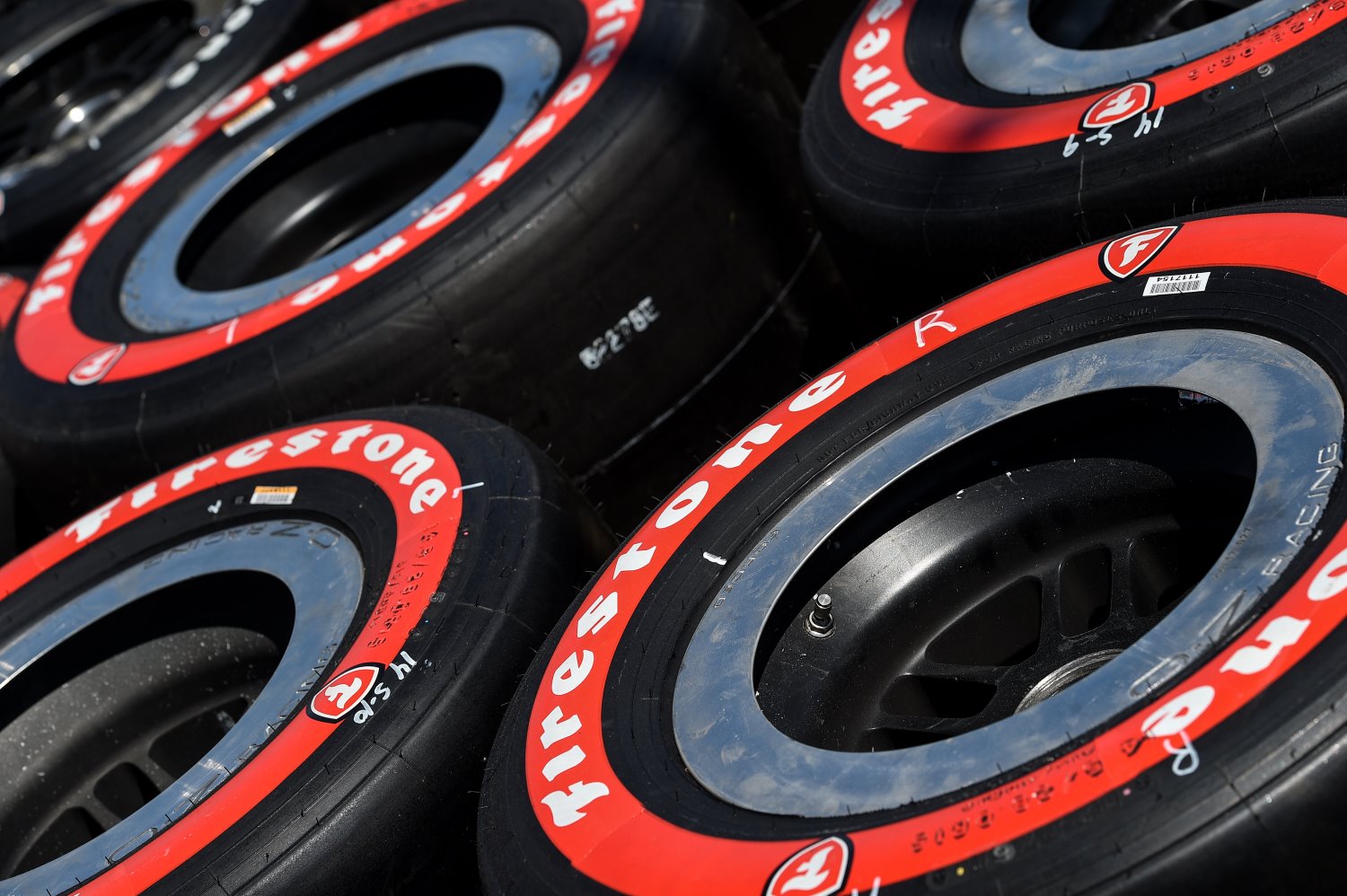Easy solution to IndyCar’s ‘red’ tire rule
 |
| Firestone red tires |
Firestone’s new chief engineer and manager of race tire development says she is meeting with IndyCar in early October to discuss possible changes in the tire regulations within the series reports David Malsher of Motorsport.com.
Cara Adams, who last Monday replaced Dale Harrigle as Bridgestone Americas’ chief engineer and manager of race tire development, has told Motorsport.com that she is meeting with IndyCar in the first week of October. And one of the items on the agenda is to discuss altering the regulations over primary [harder black-walled] tires and alternate [softer, red-walled] tires.
There have been observations – and in some cases, complaints – about the restricted use of the alternate compounds, which can alter the balance of a car, but which teams don’t get to try until the first round of qualifying on Saturday afternoon at road and street courses. One race engineer commented to Motorsport.com earlier this year: “We work our asses off, using our experience and gray matter to get stuff right and make our driver happy. And then because we never get to try these tires, all our science is worth **** in qualifying and it just becomes a lottery."
AR1.com Solution
Give each car one set of the Red alternate tires to use in practice, and one less set of the harder blacks. The 'red' set cannot be saved for qualifying or the race – they must be used in practice. Use them or lose them.
This will give all the drivers and engineers some experience with the reds before qualifying, so they gauge the right chassis setup for qualifying. And there will be no increase in cost because each car will get the same number of tires for the event.
Wet Tire Solution
The Firestone wet tires are too hard and the IndyCar drivers look like bumbling fools every time it rains – spinning out like rank amateurs. Firestone should be asked to provide a softer full rain tire and also an intermediate tire like F1 uses. If the race is wet each car will get 'X' number of intermediates and 'Y' number of full wets. They will have to manage their allocation for the weekend because once they use their allocation up, that's it – they either slow down and save tires or park the car.
The cost will not increase because the number of non-slick (intermediate and full-wet) tires Firestone brings to the track won't change – it will just be a predetermined mixed of intermediates and full wets.
